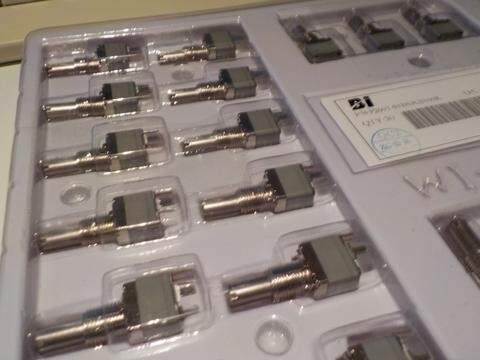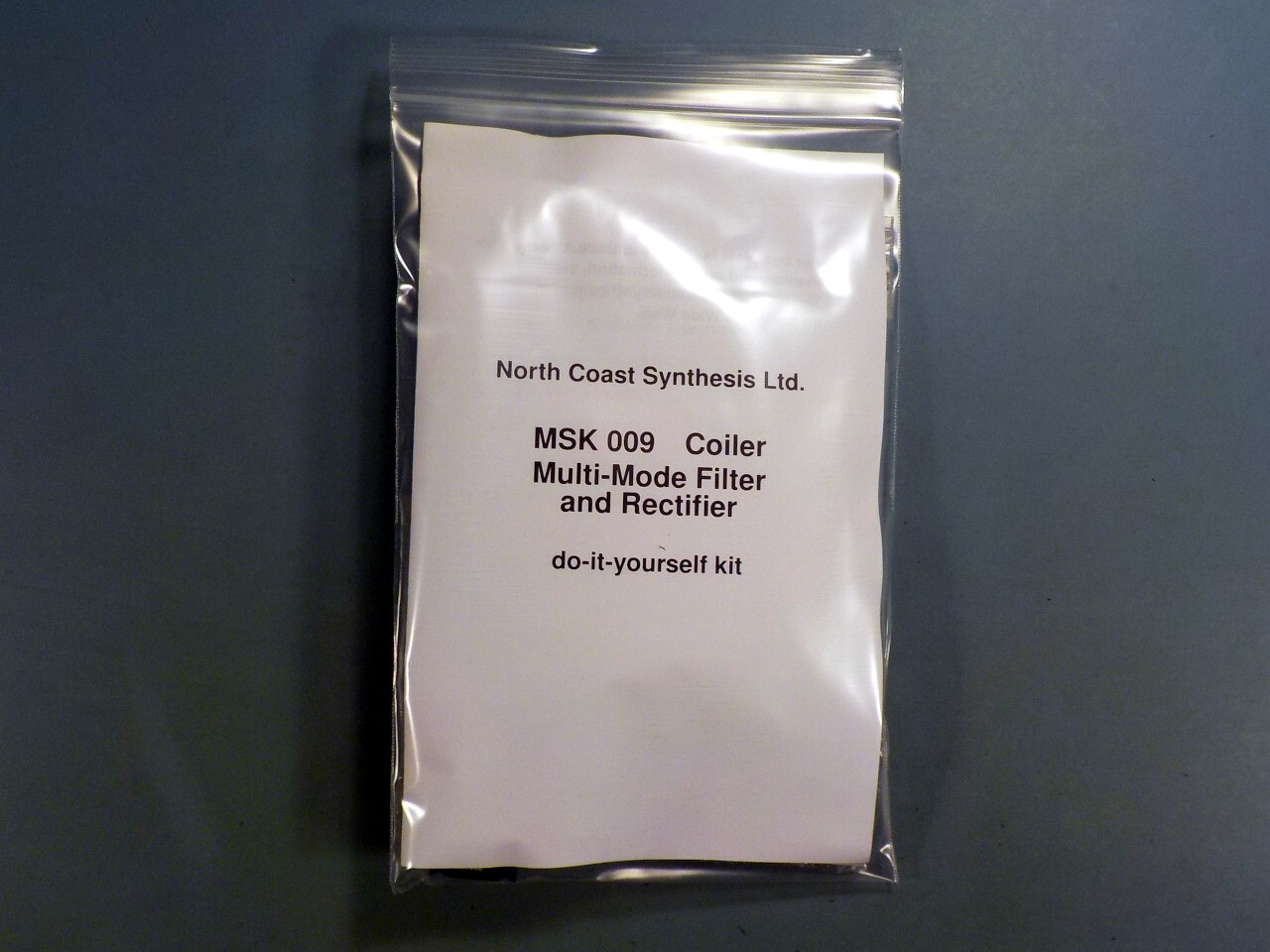Video picks
2017-09-03 electronics music science! video
I've been busy this week dusting off the design for the Leapfrog Filter. I really did most of the work on it back in 2016, and I even built a prototype which works pretty well, as you can hear in audio demos like this one. I'm hoping that will translate into a quick launch with not much more prototyping necessary. But I didn't have a chance to touch it at all while I was launching the Web shop and the other two modules, and now there's literal dust on my prototype and metaphorical dust on the design. This week I ordered most of the parts for some new prototypes, including these fancy million-operation conductive plastic potentiometers. They cost an arm and a leg even in bulk, and I can't really afford to buy them in bulk until after the first few Leapfrogs sell, but they feel great, much smoother than the cheap Thai carbon pots the discounters use. And they will basically last a lifetime. So I think the "build quality" of these, as people call it, is worth the price.

Last week's Web log entry on stabilization capacitors was very well-received, and that's great, but it makes a tough act to follow. This week I'm going to go through some YouTube videos I've been watching in my few spare moments. If you want hardcore electrical engineering instead, there's a little of that on this list but you can also read the "circuit explanation" sections of the MSK 008 and MSK 010 PDFs.
First up: Stan Rogers, Northwest Passage. A true legend of Canadian folk music, and probably his greatest album. People have different ideas of what constitutes "folk music" and many would say that if we know who wrote a song, then it's not folk, so Stan Rogers doesn't qualify. On the other hand, others would say that if it's filed in the "folk" section of the record store then it's folk; and it's true that Stan Rogers's songs are regularly mistaken for old traditional material with no defined author, so there's little doubt that it's in the same style as that stuff. My perspective, and the reason I think it's related to modular synthesis despite the very different instrumentation, is that true folk music is music made by ordinary people for their own pleasure rather than by professional musicians for money; or if the musician is a trained professional, folk music is at least music in the style of true folk music. And that's the connection to modular: as wigglers we play with toys that make a noise, for our own amusement without being professional musicians, and therefore, very much of modular music is actually folk music!
Next up is Ken Ashcorp. He seems to be some kind of indie (very indie) musician from England, I think, who mostly writes songs about fandom topics (anime, furries, MMORPGs, Japanese pop culture, and so on). He's best known for a song that became associated with the "Touch Fluffy Tail" meme, and if you look that one up, don't say I didn't warn you. The particular song I'm choosing to flag here is based on some kind of way-underground amateur yuri visual novel about high school girls who happen to also be dragons. I think that means, because of inhuman lifespans, that it takes them hundreds of years to graduate or something. I haven't actually seen the game and am not sure it really exists as more than vapourware. But what I like about this song, as well as the excellent musical production quality, is that you don't need to know any of that in order for it to be a good song. It stands perfectly well alone. And being able to write a song that is just a good song, yet also have it be fully connected to that ridiculous background context, seems pretty impressive to me. (Honourable mention: I won't feature one of her videos here but if you like Ashcorp you may also like Nyanners.)
Dave Jones (not "our" David Jones of O'Tool oscilloscope module fame) runs a video Web log out of Australia on a range of electrical-engineering topics. Not usually synth-specific, but his stuff is often relevant to our hobby and usually fun to watch even when it isn't. I've picked a video in which he gives his perspective on selling electronic products - obviously a topic near and dear to my heart. He's become popular enough that people are sending him packages of weird and wonderful things for show-and-tell, so watch for "mailbag" episodes.
I feel reasonably confident of my electronics skills, but the "music" side of electronic music still feels very mysterious to me. Don't get me wrong I like music theory, but there's a lot to learn and a lot of it is pretty difficult. This next video seems like a fun way to learn: "8-Bit Music Theory" does a deep dive into the musical theory behind video game music. There's obviously a lot of skill behind this series of videos and that makes them fun to watch. In this particular video, they cover what makes the spooky tracks from haunted-house levels sound the way they do.
While looking for something else, I found this mad-science video about attempting to make a liquid float on top of a gas. The guy does eventually succeed, with some interesting diversions along the way, but the most interesting thing I think I learned from it is that xenon is horrible stuff, as well as expensive. And he didn't even mention its anaesthetic effects. So high-pressure xenon is going onto the list of things I don't want to work with, alongside acid/peroxide PCB etching solutions.
Finally, here's the DivKid review of the Erica Polivoks VCF - basically the video that sold me on this filter. It's not the most versatile VCF; anything put through it comes out sounding, well, like it went through an Erica Polivoks VCF; but it remains probably my favourite filter excluding the ones I designed myself. Very expressive tone.
◀ PREV Understanding stabilization capacitors || Circuit board shopping NEXT ▶
